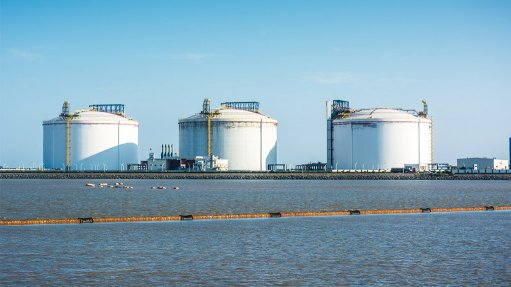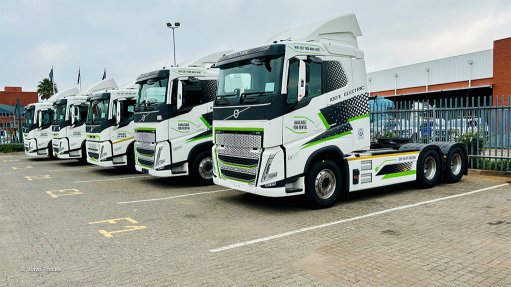Regulatory excellence key to oil, gas success
African oil and gas regulators need is an organisational culture that is committed to high performance in the advancement of public values, writes Chilenye Nwapi
Africa has been called ‘the last energy frontier’ and its petroleum industry ‘the new global hub’, thanks to new oil and gas discoveries in several countries in East and West Africa and, more recently, South Africa.
These discoveries offer significant opportunities for broad-based economic development in Africa. But this is heavily dependent on the regulatory policy environment for the development of the resources. The discoveries also present challenges in terms of combating climate change. The Commonwealth Secretariat’s Trade, Oceans and Natural Resources directorate works closely with Commonwealth countries in Africa and elsewhere to assist them with legal, fiscal and regulatory aspects of developing oil and gas policy and regulation.
To leverage the opportunities and address the challenges, Africa’s oil and gas industry needs a new regulatory mindset that is cognisant of the industry’s environment and stakeholders and that is dedicated to delivering superior performance. In short, it requires excellent regulators.
Regulatory excellence has many aspects. One is regulatory clarity, whose ‘sister’ is regulatory stability. Regulatory clarity concerns the clarity of the approach adopted by regulators to discharge their responsibilities. Clarity is essential when it comes to government objectives and rules, including fiscal rules. Clarity is also needed with respect to the expected outcomes of decisions, as well as with respect to who will be involved in making the decisions and the various roles of each of them. Clarity is needed about government oil and gas policy vis-à-vis Paris Agreement commitments, for example. Clarity about process is also critical: at what point are things expected to happen? What are the steps to be followed? A lack of clarity can lead to conflicting agendas and duplication of efforts and, worse still, can confuse investors and undermine their confidence.
The key to clarity is communication. The excellent regulator must communicate regularly with regulated entities and other stakeholders. The purpose of regulatory communication is not only to inform – it is also to engage.
For Africa’s oil and gas industry to remain relevant and attractive, regulatory clarity must be coupled with regulatory stability. Regulatory instability remains a major problem in the development of the industry in Africa. While African governments have begun to recognise this, regulatory frameworks have not yet been adequately attuned to that recognition.
Regulatory stability does not mean that governments cannot introduce changes to policy or to the law. It means that changes cannot be introduced arbitrarily or indiscriminately but must be preceded by a consultation process with stakeholders.
Regulatory clarity and regulatory stability are the cornerstones of trust from the investor’s perspective. No serious investor would be eager to invest in an environment with regulatory quagmires. Clarity promotes accountability and predictability of government actions, while stability gives the assurance that contracts will be enforced and that investors will be allowed to reap the gains of their investments.
Few investors will have the risk appetite to invest in an environment characterised by a lack clarity and certainty. Those that are willing to invest in such an environment will do so only if the expected returns are irresistible. In an era of global oil outlook uncertainty and unpredictable trade wars, a lack of regulatory clarity and certainty poses additional risks that African governments cannot afford.
Regulatory frameworks must be consciously attuned to promote the realisation of durable oil and gas contracts to avoid the need for governments to renege on already concluded contracts. Frameworks geared towards the promotion of durable contracts embrace transparency and public participation in the contracting process. Contract transparency enables flaws in contracts to be revealed, while public participation allows the public to provide important perspectives and information that enable fraud to be uncovered.
But it requires more than well-designed policies and laws to make an excellent regulator – who understands the importance of building a coalition with regulated entities, local communities impacted on by oil and gas development and other stakeholders.
The mandate the public has given oil and gas regulators in Africa, as elsewhere, is simple: ensure the safe, orderly, efficient, accountable and environmentally responsible development of the resources throughout their life cycle. Achieving a high level of performance in these tasks requires a competent workforce that believes in the mission of the regulator and is ready to defend it without political, ethnic or religious sentimentalities.
A final point in the pursuit of regulatory excellence is policy learning. Regulation is not a once-and-for-all decision-making process. Regulatory interventions undertaken today may, a few years down the line, prove to be unwise, even without any change in the prevailing circumstances.
One regulatory area where this is highly likely to occur in the oil and gas industry in Africa is local content development. Local content policies are often formulated based on contestable data – sometimes these policies are not based on any data but on assumptions, whose accuracy depends on multiple variables outside the control of governments. Many governments plunge into it without reliable data about the skills gap in the country. This has led to the setting of arbitrary targets that are very difficult, and sometimes impossible, to achieve.
Emerging digital technology is going to add a new layer of complexity and uncertainty to local content development, owing to its potential impact on labour in terms of both skills shortages and automation. Key to addressing the challenges is policy learning – the ability of the regulator to revisit its decisions to assess their strengths and shortcomings and the regulator’s willingness to change its actions if new information warrants this to better serve the public interest.
Regulatory excellence does not mean perfection – it is achieved on the road to perfection.
The Commonwealth Secretariat’s programme of technical assistance to several of its African member countries will help strengthen their capacity to achieve the desired high performance in the regulation of their oil and gas resources.
Dr Nwapi is a legal adviser on oceans and natural resources to the Commonwealth Secretariat.
Comments
Press Office
Announcements
What's On
Subscribe to improve your user experience...
Option 1 (equivalent of R125 a month):
Receive a weekly copy of Creamer Media's Engineering News & Mining Weekly magazine
(print copy for those in South Africa and e-magazine for those outside of South Africa)
Receive daily email newsletters
Access to full search results
Access archive of magazine back copies
Access to Projects in Progress
Access to ONE Research Report of your choice in PDF format
Option 2 (equivalent of R375 a month):
All benefits from Option 1
PLUS
Access to Creamer Media's Research Channel Africa for ALL Research Reports, in PDF format, on various industrial and mining sectors
including Electricity; Water; Energy Transition; Hydrogen; Roads, Rail and Ports; Coal; Gold; Platinum; Battery Metals; etc.
Already a subscriber?
Forgotten your password?
Receive weekly copy of Creamer Media's Engineering News & Mining Weekly magazine (print copy for those in South Africa and e-magazine for those outside of South Africa)
➕
Recieve daily email newsletters
➕
Access to full search results
➕
Access archive of magazine back copies
➕
Access to Projects in Progress
➕
Access to ONE Research Report of your choice in PDF format
RESEARCH CHANNEL AFRICA
R4500 (equivalent of R375 a month)
SUBSCRIBEAll benefits from Option 1
➕
Access to Creamer Media's Research Channel Africa for ALL Research Reports on various industrial and mining sectors, in PDF format, including on:
Electricity
➕
Water
➕
Energy Transition
➕
Hydrogen
➕
Roads, Rail and Ports
➕
Coal
➕
Gold
➕
Platinum
➕
Battery Metals
➕
etc.
Receive all benefits from Option 1 or Option 2 delivered to numerous people at your company
➕
Multiple User names and Passwords for simultaneous log-ins
➕
Intranet integration access to all in your organisation


















